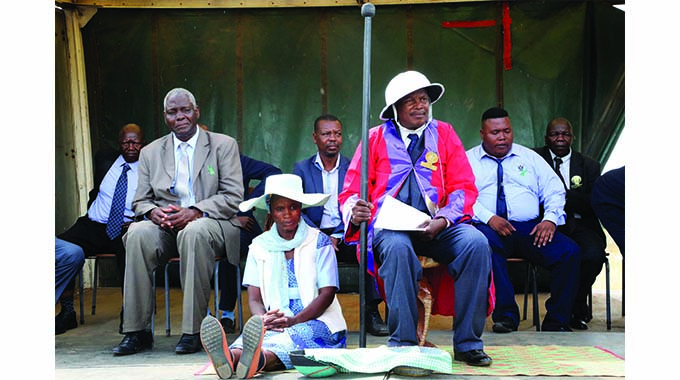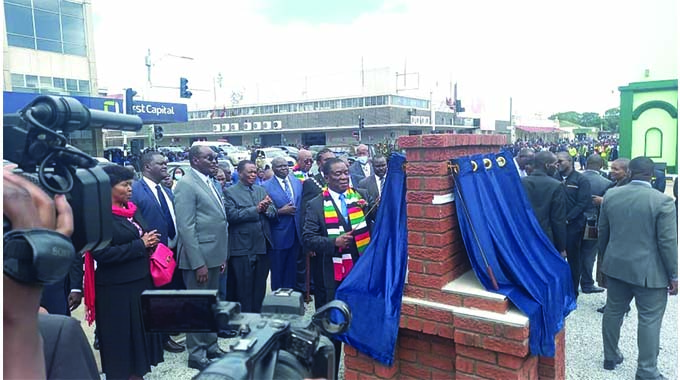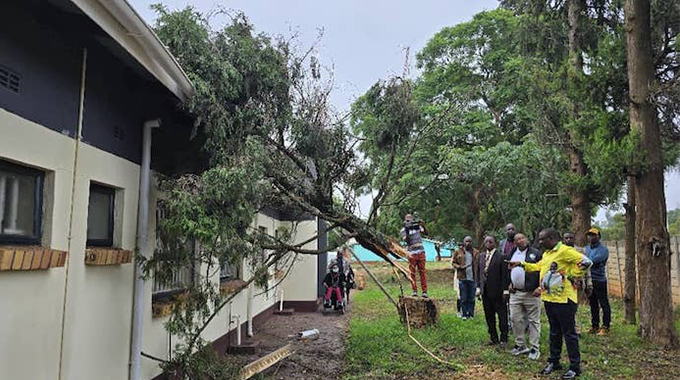Discrimination to determination. . . The inspiring story of the San’s transformation

Nqobile Tshili, Chronicle Reporter
IN a world filled with discrimination, disappointment, and shattered dreams, George Sibanda (40) knows all too well the pain of these experiences.
Born in poverty-stricken conditions among the San community in Tsholotsho, Matabeleland North, he had to overcome tremendous obstacles just to receive an education.

Mr George Sibanda
Today Sibanda stands tall, with his head held high, looking towards the future. His eyes are filled with hope and determination, and his hands are open wide, ready to embrace whatever challenges lie ahead. Behind him, some of the San community, stand together in solidarity, their faces lit up with joy and excitement. In the background, there is a beautiful sunset, symbolising the end of an era of discrimination and the beginning of a new chapter filled with promise and possibility.
At the start of his journey to see the San community uplifted was his father’s friend, Earnest Magula Moyo, who was not a San.
He took him in and ensured that he was educated up until secondary school, but Sibanda was unable to write his Ordinary Level examinations due to financial constraints despite being so intelligent that in primary school he was made to skip Grade One, Three and Four classes.

San people celebrate new chief
Because of his intelligence, at the height of the shortage of teachers in 2000s, he was allowed to teach at one of the primary schools.
“In 2009, Government through Tsholotsho District allowed me to become a teacher at Mpilo Primary School hoping that the allowances that were being paid would enable me to raise enough funds so that I could register to write examinations. But by then I had a family, so it became difficult for me.
“When I became a teacher, there was a challenge where other community members were discriminating against me. I remember in one of the days, pupils left class in protest saying their children can’t be taught by a San, something which I believe was coming from their parents.”
If he thought being a teacher was a veneer against hate and discrimination — he thought wrong — he came face-to-face with intolerance — community members protested against him, forcing him to leave and fight for his community’s rights. Some of the community leaders never believed that anything good could come from a member of the San community, he says.
“I was building houses in Bulilima as I studied in school. One day a village head came speaking in Kalanga and said ‘Hango yapalala, Bathwa batjiziba baka’ meaning Umhlaba sutshabalala, amasili seyenelisa ukwakha in IsiNdebele (the world is coming to an end even the San can now build house).

San man
“This is how I realised that as a tribe we had serious challenges. I said to myself I’m facing these challenges despite going to school, what about my community members where most of the people have never been to school. So, I made a commitment to fight for our rights.”
It was a long and challenging road ahead, but Sibanda refused to give up. He remembered how one of the San elders, Fanele Sibanda, would walk long distances to Tsholotsho Centre to engage Government departments on issues to do with the San community’s rights. Sibanda knew that someone had to continue the fight, and so, together with Christopher Dube, who was installed as Chief Goledema, they took up the mantle.

“Chief Goledema and I were the ones who pushed that the young man should go to university and this will enable continuity when we can no longer continue. We hope to resuscitate our language because our language is facing extinction. We have documented the language, it needs to be translated.
We hope the youth who have gone to university will uplift others. One of them, Nkosiyazi Ncube (a student at Midland State University) is already teaching here. I taught him when he was in Grade Four when I was doing temporary teaching,” Sibanda said.

It was not until 2018, when the Second Republic came to power, that things began to change. First Lady Dr Auxillia Mnangagwa brought the San community’s issues to the spotlight, and Government officials began to take notice. Cabinet Ministers, including Local Government and Public Works Minister July Moyo and the then Primary and Secondary Education Minister Cain Mathema, visited the community to listen to their concerns, and President Mnangagwa instructed Government departments to implement programmes that would uplift the San community.
“The changes started in 2018 that is when we started having Government coming closer to us. We had a visit from the First Lady who visited our communities. Thereafter, Government officials also started coming to our communities and listening to our issues,” he said.
Today, the San community is witnessing a transformation. They now have access to national documents such as birth certificates and IDs, which they once thought were unattainable.

They have a chief, and Government has promised to install headmen and village heads. Water is now available across their villages, and boreholes have been drilled in the community. In Bulilima, they have a nutritional garden, and these things are all meant to uplift their community.
“Now we have a chief and Government has promised to install headmen and village heads for us.
“We now have water across our villages, boreholes have been drilled in the community and in Bulilima we now have a nutritional garden and these things are all meant to uplift our community.

“The Second Republic has lifted us. We have never seen such in our lives. Among our people, those in Tsholotsho are now advanced and more needs to be done to uplift those in Bulilima district.
“We didn’t know that Tjwao could have a birth certificate or IDs. The elders in the community would say they don’t have money to buy these IDs. This was because we did not have anyone who was working.

In Bulilima we had more than 300 people without national identity documents. But now I think they may be just 15 some of them who were in Botswana and just a few who have lost their documents and those who had their homes burnt. So, from initially having 300 people without IDs to having less than 15 people is remarkable. Government departments have really assisted us.”
Sibanda is grateful to President Mnangagwa for walking the talk and not leaving any place or anyone behind. His vision is to not only lift communities but to also create an upper middle-income economy by 2030. Sibanda believes that there is still more work to be done, especially for those in Bulilima district, but he remains optimistic about the future.












Comments